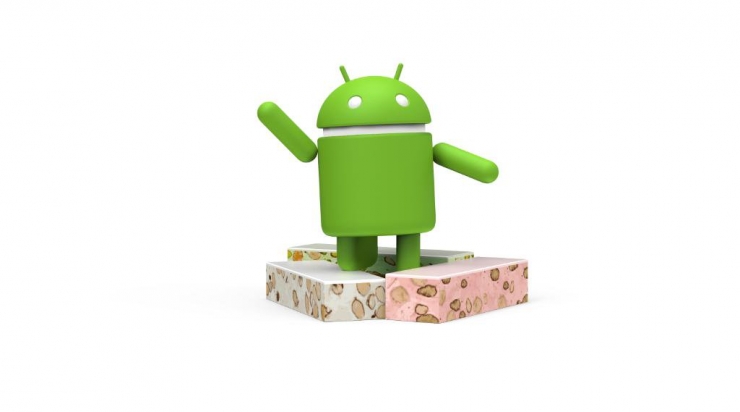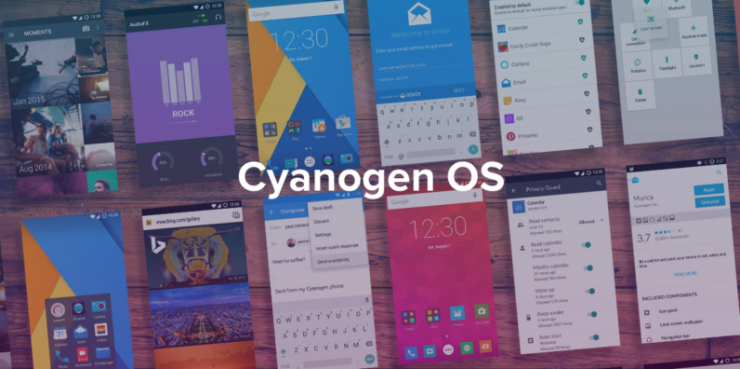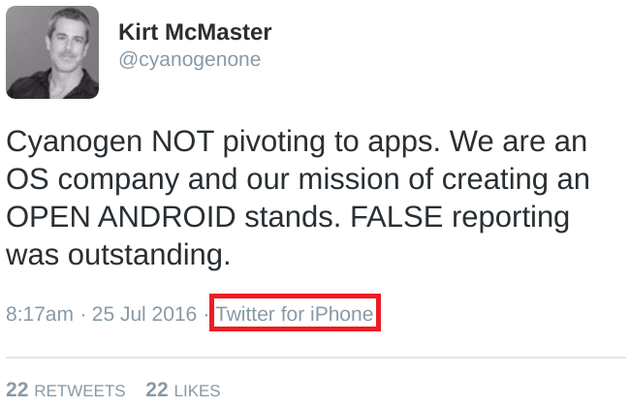Cyanogen Android third-party developer will give up Android, its CEO denied

According to foreign media reports such as The Next Web, Cyanogen, a global Android ROM developer that once worked with China’s OnePlus mobile phone, recently announced that it will conduct major layoffs and will abandon the development of an Android customization system in the future to transform the development of other Android application software.
It is reported that Cyanogen employs 136 employees around the world. This time about 30 employees will be laid off, nearly 20%, and employees who have been laid off are mainly concentrated in the development of Android custom packages.
As we all know, in the current global smartphone market, Apple's iOS and Google's Android system together occupy more than 90% of the smartphone operating system market. Cyanogen is currently the world’s largest Android third-party compilation team. For a long time, the company has developed an Android third-party custom package named “CM (Cyanogen Mod)†that uses open-source Android code provided by Google to optimize functions and provide them to external vendors. In March last year, Cyanogen also completed a $80 million Series C round of financing. This round of financing brought it close to $1 billion worth of valuations, and Cyanogen has naturally become an unquestionable "unicorn".

A few years ago, the performance of Android phones was not mature, and Catton was often used. A large number of Android ROM and custom manufacturers have appeared on the market, and mobile phone flashing has also become a great pleasure for users. The modified and improved version based on the Android system provided by Cyanogen is used by many users and many manufacturers.
However, the picture is not long. With the huge changes in the global Android mobile phone market in the past few years, the product cost and price are getting lower and lower, and the performance of mobile phones is becoming more and more mature. In addition, different Android mobile phone manufacturers learn from each other's customized system's innovative features, and the overall user experience is getting better and better. Coupled with the increasing popularity of smartphones, users of mobile phones are no longer “technical geeks†in the past. They do not have the wealth of system brushing knowledge and the demand for third-party systems and flash machines is getting lower and lower.
At the same time, like other Android ROMs, Cyanogen has also experienced a "deteriorating" phenomenon. Initially, Cyanogen emphasized the simplicity and purity of the system, pursuing the fluency first, but the company later introduced a development platform and opened the interface, which meant that the system was more complicated and the external plug-in was more messy. The declining market demand, coupled with the deterioration of its own services, made Cyanogen's situation a bit difficult.
China’s OnePlus mobile phone has cooperated with Cyanogen to launch a “plus or minus†mobile phone equipped with a customized Cyanogen Mod Android system. However, it subsequently received an authorization from Indian manufacturer Micromax to sue for exclusive ownership of the system in the past four months. After the dispute, Yijia and the Cyanogen system team formally terminated their cooperation. Subsequently, Cyanogen chose to work with Microsoft to bundle Bing, Skype, OneDrive, Outlook, and Office into Cyanogen OS, which made the customization system more and more bloated. Since no mainstream manufacturer uses this system, this cooperation does not seem to have achieved anything.
However, Cyanogen’s CEO Kirt McMaster clarified on Twitter this week that his company will not transition to application development and will remain an operating system company. He said in a Twitter message: "Cyanogen will not transform application development. We are an operating system company. Our mission is to develop open source Android standards. The wrong reports are circulating." But it is interesting that this message is used iPhone released.

Cyanogen has always had great intentions, and Krit McMaster once said in an interview with Forbes that he “had to give Google a bullet†and tried to establish a portal outside of Google to get Android out of Google’s control. , Android is taken away from the valley singer. But now it seems that this sentence is a bit stubborn. His own plight has already caused Cyanogen, who had hoped to "give a bullet to Google's head," and unknowingly turned the gun to himself.